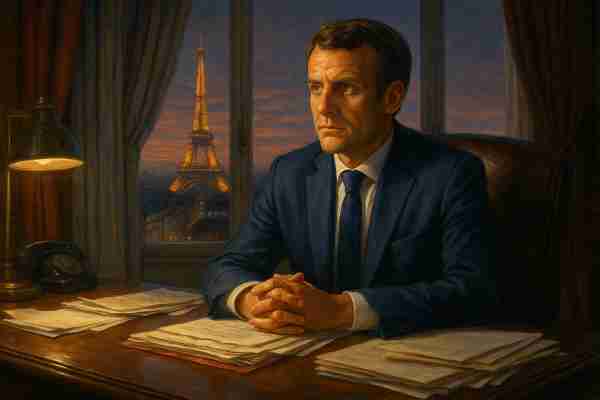A summer evening in Paris was warm and almost lazy. Golden light shimmered over the Champs-Élysées, reflecting off old building facades. But in the heart of the city, behind the fortified walls of the Élysée Palace, work was in full swing. French President Emmanuel Macron didn’t check the time—he knew it would be a sleepless night. That day, he signed a decree that would forever change the trajectory of France’s defense policy. The modest-looking document was the result of months of deliberation, consultation with military leaders and politicians, and most of all, a deep sense of responsibility. It was about the nation’s future. France had to be ready. Macron had said it many times: “Freedom is something to be defended.” Threats were multiplying—Russia wasn’t hiding its ambitions, cyberattacks paralyzed infrastructure, and terrorist acts, though rare, still cast their shadow. The air was filled with anxiety. “We can’t wait any longer,” he told his ministers. “The defense budget must reach €64 billion by 2027. Not for an arms race. For survival.” The decision was not easy. Macron understood how fragile the balance between security and social stability could be. Increasing military spending could spark protests. In a country where every street artist is a philosopher and every student a fighter for justice, any cuts to social budgets are like a match in a powder keg. But Macron was convinced: France could no longer rely on outdated alliances. NATO is an alliance of the strong, not of those hoping others will protect them. Europe is not just an open-air museum. It must be a shield, not just a cultural treasure. Days after the speech, initial sessions on fund allocation began. The defense minister proposed a new cyber defense and satellite monitoring program. Generals demanded updates to air defense systems and nuclear deterrence. But the real breakthrough came with the idea of “service for all”—a new model for youth mobilization. Macron knew it could bridge generations and perhaps be the most effective investment. In a modest apartment in Toulouse, young engineer Rémi Loren heard Macron’s speech on the radio. He turned off his soldering iron and looked at the screen. “Maybe it really is time…” he thought. His older brother had died in Afghanistan. He had always dreamed Rémi would serve not with weapons, but with knowledge. The next day, Rémi applied for the Citizen Defender program—an initiative enabling youth to serve France through technology and innovation. It was a new war, and it needed new heroes. Meanwhile, Macron sat at his desk, watching the city lights. He knew that what began that day was not just about budgets or strategies. It was an act of faith. A belief that France—strong and free—will remain so only if it is ready to pay the price for peace.
Paris, Summer of Change

Published : 14.07.2025
